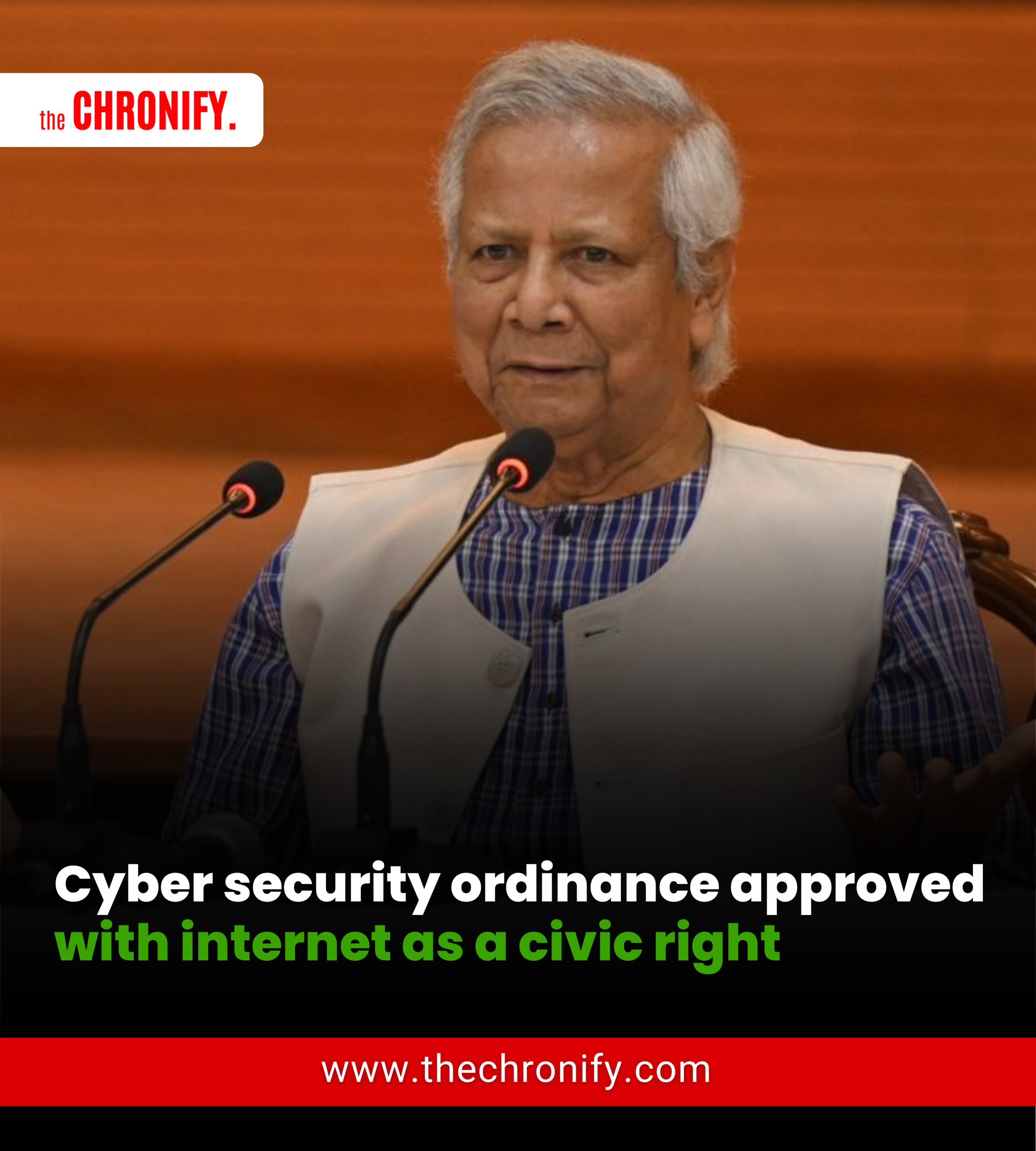The interim government of Bangladesh is set to replace the controversial Cyber Security Act with a new law titled the Cyber Protection Ordinance. After extensive discussions and multiple revisions, the draft of the new ordinance was approved today at a meeting of the Advisory Council, chaired by Chief Advisor Professor Muhammad Yunus at his office in Tejgaon, Dhaka.
For the first time, the proposed ordinance recognizes internet access as a citizen’s right and bans online gambling. Additionally, it scraps nine contentious sections from the old Cyber Security Act. Provisions concerning religious incitement that could provoke violence remain punishable offenses under the new law.
At a press conference held at the Foreign Service Academy, Legal Advisor Asif Nazrul, along with Youth and Sports Advisor Asif Mahmud Sajib Bhuiyan and Chief Advisor’s Press Secretary Shafiqul Alam, elaborated on the ordinance. Nazrul stated that offenses involving cyber harassment or sexual exploitation of women and children are retained as punishable crimes.
The nine repealed sections—previously used to file the majority of cases under the Cyber Security Act—will now be nullified, automatically dismissing existing cases. Among the repealed provisions are those that criminalized content critical of the Liberation War, the Father of the Nation, national symbols, and defamation.
The ordinance also limits provisions related to free speech offenses, focusing only on sexual harassment and religious hate speech that may incite violence. Safeguards have been introduced: any related cases must be reviewed by a court within 24 hours, with judges empowered to dismiss baseless cases at the pre-trial stage.
Furthermore, offenses involving artificial intelligence will be punishable under the new law. The ordinance also mandates judicial oversight for content removal and requires public notification if any online content is taken down.
Nazrul noted that the draft was revised 25 times following consultations, including a final session with key civil society representatives. The ordinance will undergo legal vetting before being formally enacted, likely within the week.
In addition, the council approved amendments to the law governing the delimitation of parliamentary constituencies and finalized revisions to the Civil Procedure Code (CPC).

